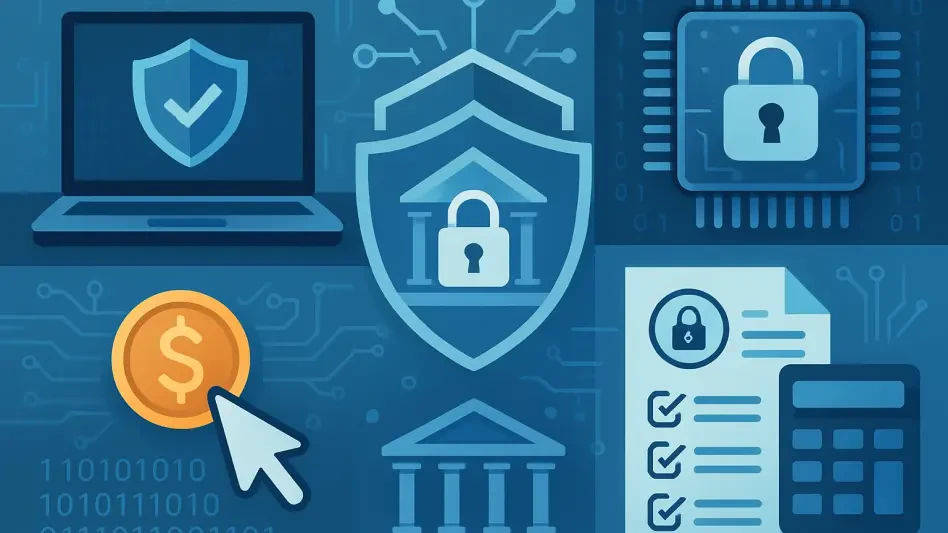In today’s increasingly digital world, data security is paramount for enterprises of all sizes. With the prevalence of cyber threats posing significant dangers, businesses face potential financial loss, damage to reputation, and legal issues if their data isn’t adequately protected. Drafting new policies can be a daunting task due to the time and expertise required for creating comprehensive guidelines. However, cybersecurity policy templates offer a streamlined solution that helps organizations bolster their data protection efforts rapidly and effectively.
Defining Security Guidelines
Cybersecurity extends far beyond just having strong passwords and antivirus software; it encompasses a comprehensive set of principles that all members of an organization must follow to ensure total security. Without clear regulations, the risk of exposing sensitive data to security attacks increases significantly. This is where cybersecurity policy templates come into play—they help maintain structured security policies by detailing best practices for managing, storing, and securing corporate data.
Well-formulated cybersecurity policies typically cover vital aspects such as incident response, data encryption, password management, and access controls. This ensures that employees at all levels within an organization understand their roles and responsibilities when it comes to data protection. By adopting templates that already outline these crucial components, organizations can establish robust security guidelines without needing to start from scratch. This structured approach not only mitigates the risk of data breaches but also fosters a culture of security awareness and accountability among employees.
Time and Effort Savings
Developing cybersecurity policies from the ground up is a time-intensive process that requires extensive research and technical knowledge. For small and medium-sized businesses, which often lack in-house cybersecurity expertise, creating detailed policies independently can be a formidable challenge. This is one of the primary reasons why cybersecurity policy templates are invaluable—they provide a pre-formulated structure that businesses can quickly adapt to their specific needs.
By using these templates, companies can save significant time and resources that would otherwise be spent on drafting policies. Instead of hiring expensive consultants to develop policies, organizations can focus their efforts on implementing effective security practices. Cybersecurity policy templates remove the burden of extensive research and technical writing, allowing businesses to allocate their time and resources more efficiently. This streamlined process not only accelerates the development of security policies but also ensures that they are comprehensive and compliant with industry standards.
Meeting Regulatory Compliance
Certain industries, such as government, medical, banking, and online businesses, are subject to stringent data security regulations like NIST 800-171, GDPR, HIPAA, and PCI DSS. Non-compliance with these regulations can lead to severe penalties, including hefty fines and legal actions, along with the potential loss of customer trust and business credibility. Cybersecurity policy templates are instrumental in helping businesses meet these regulatory requirements without compromising the effectiveness of their security practices.
These templates provide a clear framework for developing policies that adhere to industry-specific data security standards. By incorporating the necessary regulations into their security guidelines, businesses can mitigate the risks associated with non-compliance and ensure secure operations. Using cybersecurity policy templates simplifies the process of aligning with regulatory standards, reducing the likelihood of oversights and errors. Additionally, having well-documented policies in place can demonstrate an organization’s commitment to data protection, enhancing its reputation and building customer trust.
Enhancing Awareness and Accountability
Human error remains a significant factor in data breaches, with employees often falling victim to phishing attacks, using weak passwords, or inadvertently exposing sensitive data through negligent actions. Well-formulated cybersecurity policies are crucial for establishing clear security expectations and responsibilities among employees. This is where cybersecurity policy templates become particularly valuable—they simplify the process for employees to understand and comply with best practices, thereby minimizing costly mistakes.
By providing clear and coherent guidelines, cybersecurity policy templates ensure all employees are aware of their roles in protecting sensitive information. These templates outline specific actions required for maintaining data security, such as avoiding phishing scams, using complex passwords, and properly handling sensitive data. By fostering a culture of awareness and accountability, organizations can significantly reduce the risk of human error leading to data breaches. Furthermore, well-defined policies serve as a reference point for employees, promoting consistency in security practices across the organization.
Adapting to Evolving Threats
Cyber threats are continually evolving, and organizations must stay updated on new threats to avoid becoming easy targets. Static policies are inadequate in addressing dynamic cyber threats; therefore, organizations need flexible policies to keep pace with new vulnerabilities. Cybersecurity policy templates enable businesses to make necessary adjustments in sections without overhauling entire policies, promoting a proactive stance against emerging threats.
By maintaining a flexible policy structure, organizations can rapidly adapt to new challenges and fortify their defense mechanisms. This adaptability is essential for staying ahead of cybercriminals who constantly devise new methods to exploit security weaknesses. Cybersecurity policy templates provide the foundation for creating dynamic policies that can be quickly modified in response to shifting threat landscapes. This proactive approach to cybersecurity ensures that businesses are always prepared to counter new security threats, thereby enhancing their overall resilience.
Protecting Organizational Integrity
In our increasingly digital era, data security has become crucial for businesses of all sizes. With the rise of cyber threats, the potential risks are substantial. Companies can suffer financial losses, damage to their reputation, and encounter legal problems if their data isn’t properly secured. Crafting new security policies can be daunting because developing comprehensive guidelines requires both time and expertise. Fortunately, cybersecurity policy templates provide a streamlined solution. These templates allow organizations to quickly and effectively enhance their data protection measures. By using these ready-made policies, businesses can minimize the time and effort spent on drafting and ensure that they adhere to industry best practices. This approach not only helps in mitigating risks but also ensures that companies are proactive in safeguarding their sensitive information. Consequently, leveraging cybersecurity policy templates is a practical and efficient strategy for bolstering an organization’s defenses against the ever-growing landscape of cyber threats.







